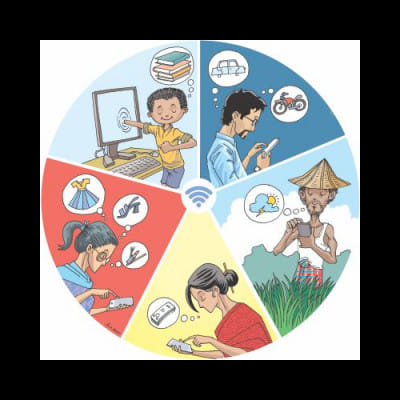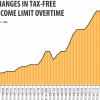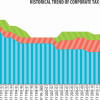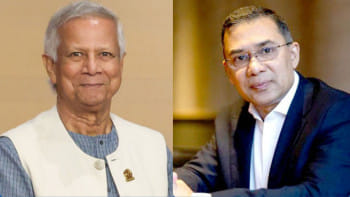DIGITAL SERVICES: When popular, made pricier

Customer will have to pay more for products and service bought from one's mobile phone as the government yesterday introduced a 5 percent value-added tax on those from next fiscal year and also raised the surcharge on handset imports.
In his budget proposal Finance Minister AMA Muhith proposed a 5 percent VAT on all virtual businesses that use mobile apps to reach out to their users, such as ride-hailing services Uber and Pathao.
The tax will negatively impact the growth of the digital service industry, said Hussain M Elius, chief executive officer of Pathao.
Muhith also hiked the surcharge on handset import to 2 percent from existing 1 percent. This means, to import handsets, taxes of more than 31 percent-- including 10 percent customs' duty, 15 percent VAT, 2 percent advance income tax and another 2 percent surcharge -- will have to be furnished.
Both the moves were considered to be an about turn from the government's previous digitisation promise.
"Taxation of virtual and digital sectors would expand tax base, remove ambiguity and reduce litigation," said Sushmita Basu, lead of PricewaterhouseCoopers's Bangladesh Tax and Regulatory Practice.
On top of the VAT on ride-hailing service, car owners who are earning from the service will have to pay income tax.
"At present, many youths are employed in this service. They will be affected by the new tax structure," Elius added.
Confusion over virtual business and e-commerce
Online business entities are filled with confusion over the finance minister's budget speech as he did not specify any details on the VAT for virtual businesses.
In order to bring the virtual businesses within the tax net, a new service code has been defined as "Virtual Business", on which 5 percent VAT shall be imposed.
However, in another point he exempted e-commerce from VAT.
"It has created confusion among us and VAT officers can push me to pay in any part of this segment if they want," said AKM Fahim Masroor, chief executive officer of ajkerdeal.com. The country is far behind when it comes to true digitalisation, said Razib Ahmed, founding president of the e-Commerce Association of Bangladesh.
To achieve that, the industry needs to grow further but the government's proposal will hinder the growth.
People are yet to become habituated to shop online and only a few lakh people use the channel, he added.
In 2015, Muhith tried to impose a 4 percent VAT on e-commerce, which he was forced to withdraw following pressure from stakeholders. The IT and e-commerce entrepreneurs and business leaders have pushed the government to keep it out of the purview of VAT until 2024.
The e-commerce players have urged the government to keep the digital shopping segment out of any tax until 2021.
The industry is now worth about Tk 2,000 crore a year, having about 40 percent growth per annum.
Last year the government imposed heavy charges on mobile handsets that impacted the market negatively, said Rezwanul Haque, CEO of Transsion Bangladesh.
Handset sales observed negative growth for the first time in the January-March quarter and this fresh round of tax will hinder digitalisation, he said.
However, the finance minister also proposed to bring down the import tax on various raw components for mobile assembly to 1 percent from 10 to 24 percent. "This is a good initiative, but it will take at least one or two years for locally assembled handsets to flourish in the market," Haque said.
Every year Bangladesh demands about four crore devices, of which hardly a few lakh would come from local assembly lines, said a top vender who is also setting up a plant.
Mobile operators said they are surprised to see the increase in surcharge on handset imports when their demands were the exact opposite.
They requested the government to help them boost 4G usage by lowering the taxes on handset imports for at least the next two years.
"While it is very encouraging to see Bangladesh emerge as a handset-manufacturing country, we need to remember that the industry has barely started its journey and we are in no position to ascertain its production capacity," said Shahed Alam, executive vice-president and head of regulatory affairs at Robi. "We fear this untimely hiking of surcharge will be counter-productive to the implementation of the Digital Bangladesh vision," he added.
The government also plans to cut the import tax on some software that are not developed in the country.

 For all latest news, follow The Daily Star's Google News channel.
For all latest news, follow The Daily Star's Google News channel. 








Comments